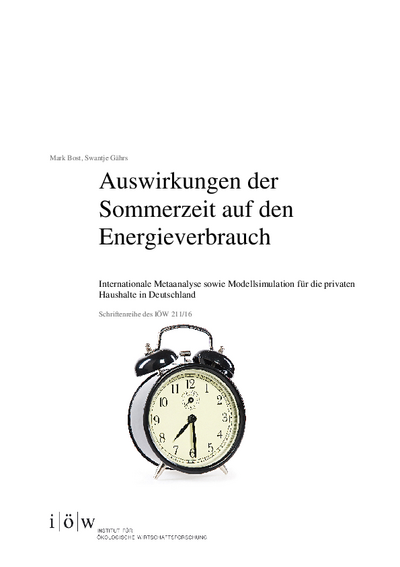The Impact of Daylight Saving Time on Energy Consumption
The assessment at hand compiles and evaluates recent scientific findings about the effects of daylight saving time (DST) on energy consumption. It combines an international literature analysis with a survey among more than 700 actors of the German energy industry in order to include any unpublished findings. Additionally, model simulations for private households in Germany were conducted, focusing on the relatively new actor group of “prosumers” in the energy sector.
Results from the literature analysis show that the effects of DST on energy consumption can be both positive and negative. Their characteristics and level depend strongly on climatic, economic and cultural conditions, and they are with considerable certainty in most cases very small. The majority of studies estimates a reduction of consumption of less than 0.2 % of the electricity consumption or 0.03 % of the final energy consumption of a country. The model simulations shows a considerable improvement of the correlation of electricity consumption and electricity production by photovoltaics (PV) of more than 5 %. In the context of the Energiewende, this can serve as a clear argument for DST or year round DST (YRDST).



